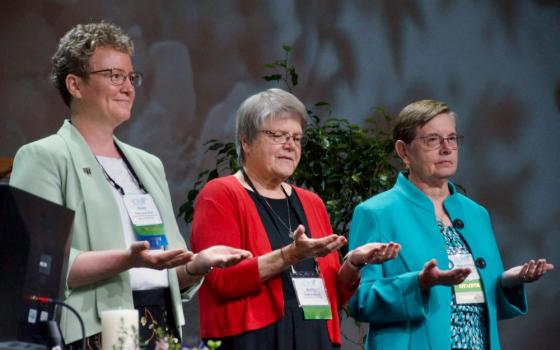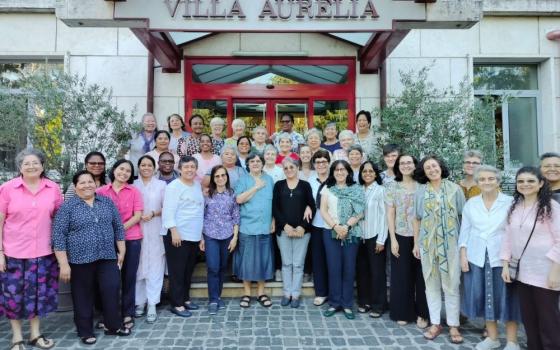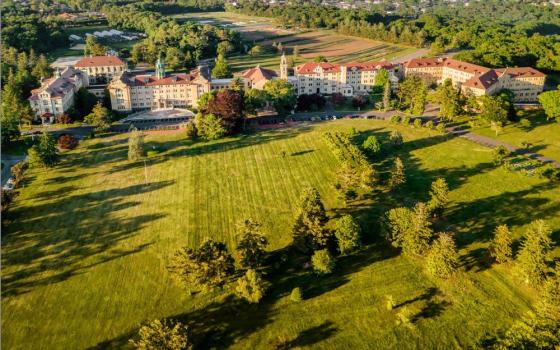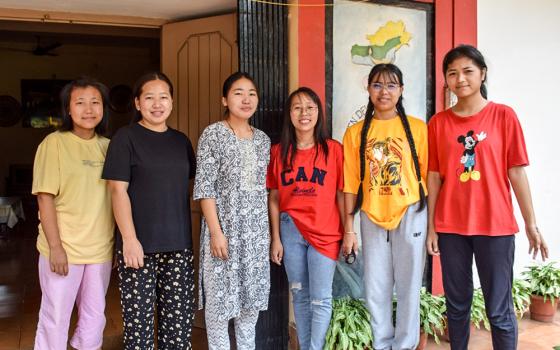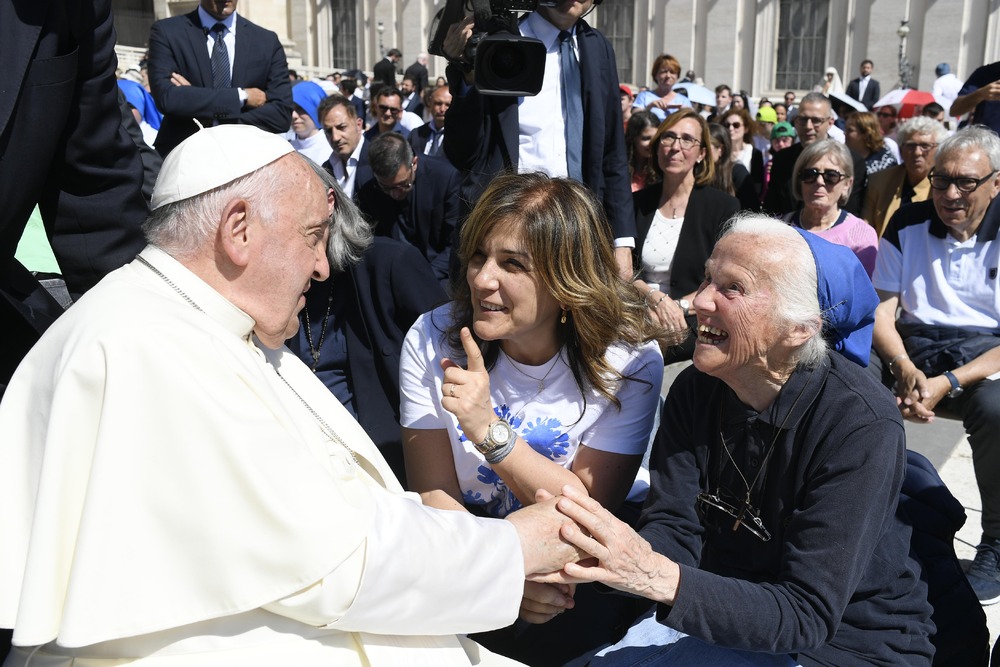
Pope Francis speaks to Sister Geneviève Jeanningros, a member of the Little Sisters of Jesus, and her friend, Ada, at the end of his weekly general audience June 5, 2024, in St. Peter's Square at the Vatican. The French sister brings circus and carnival workers, Roma people, transgender people and others with her to meet the pope almost every week. (CNS/Vatican Media)
Sister Geneviève Jeanningros, a member of the Little Sisters of Jesus, sits in the front row most Wednesdays at Pope Francis' weekly general audience. And she is never alone.
The 81-year-old French sister, who has lived in a travel trailer among circus and carnival workers for the past 56 years, has introduced them to the pope. She also brings along Roma people, travelers, transgender people and "couples of various kinds," Vatican News reported June 5.
A Vatican News reporter sat with Jeanningros and her guest, Ada, at the pope's audience earlier that day.
Regarding the recent controversy surrounding Francis' use of a homophobic slur during a closed-door question-and-answer session with Italian bishops, Jeanningros said, "at first there was a bit of pain, but looking back they had a laugh and said, really, he's not like that. The pope loves the little ones, he certainly doesn't throw them away."
And, in fact, she said, June 12 she will accompany a group of 10 people to meet the pope; seven of them are homosexual, and "they want to reaffirm their affection for the pope."
Jeanningros' weekly general audience visits began in 2022 when a group of trans women wanted to thank Francis for the assistance the Vatican provided them during the COVID-19 pandemic and Italy's strict lockdown.
"The pope welcomed us — I don't even know how to describe it," she told Vatican News. There was a flow of cards and letters and even empanadas prepared by the Argentines and much appreciated by the pope.
"They love him so much because this is the first time trans and gay people have been welcomed by a pope," Jeanningros said. "They thanked him because they finally found a church that went out to meet them."
Advertisement
During the lockdown, they had no work, nothing to eat and the bills just kept piling up, so they went to see Jeanningros' friend, Father Andrea Conocchia, pastor of the parish in Torvaianica, seeking help. He turned to Cardinal Konrad Krajewski, the papal almoner.
"We asked for help, and he came with a van full of stuff. 'And if they need help with the bills, bring them to us,' he told us," she said. Jeanningros made sure the carnival and circus workers and their families were provided for and Conocchia helped 40 or 50 members of the trans community, many of whom are South American, including several from Argentina.
Krajewski also sent some of the volunteer doctors who staff the clinic for the homeless in St. Peter's Square out to their seaside community to care for the sick, she said, and when vaccines became available, Francis made sure their communities had access.
When they said they wanted to thank the pope in person, Jeanningros said she did not know how Vatican employees and other visitors at the audience would react.
"You know, there are some prejudices. I understand them. I had them when I was young, too, but then you meet people, you see their sensitivity. You cry and laugh with them," she told Vatican News.
